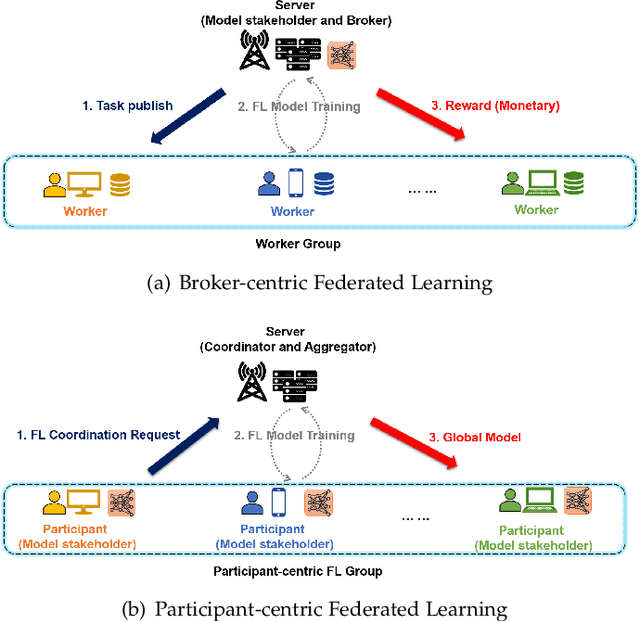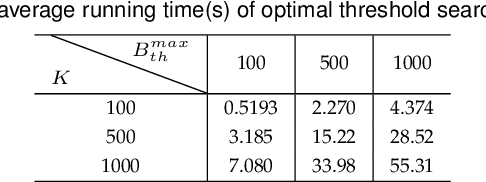Guangjing Huang
IMFL-AIGC: Incentive Mechanism Design for Federated Learning Empowered by Artificial Intelligence Generated Content
Jun 12, 2024



Abstract:Federated learning (FL) has emerged as a promising paradigm that enables clients to collaboratively train a shared global model without uploading their local data. To alleviate the heterogeneous data quality among clients, artificial intelligence-generated content (AIGC) can be leveraged as a novel data synthesis technique for FL model performance enhancement. Due to various costs incurred by AIGC-empowered FL (e.g., costs of local model computation and data synthesis), however, clients are usually reluctant to participate in FL without adequate economic incentives, which leads to an unexplored critical issue for enabling AIGC-empowered FL. To fill this gap, we first devise a data quality assessment method for data samples generated by AIGC and rigorously analyze the convergence performance of FL model trained using a blend of authentic and AI-generated data samples. We then propose a data quality-aware incentive mechanism to encourage clients' participation. In light of information asymmetry incurred by clients' private multi-dimensional attributes, we investigate clients' behavior patterns and derive the server's optimal incentive strategies to minimize server's cost in terms of both model accuracy loss and incentive payments for both complete and incomplete information scenarios. Numerical results demonstrate that our proposed mechanism exhibits highest training accuracy and reduces up to 53.34% of the server's cost with real-world datasets, compared with existing benchmark mechanisms.
Collaboration in Participant-Centric Federated Learning: A Game-Theoretical Perspective
Jul 25, 2022



Abstract:Federated learning (FL) is a promising distributed framework for collaborative artificial intelligence model training while protecting user privacy. A bootstrapping component that has attracted significant research attention is the design of incentive mechanism to stimulate user collaboration in FL. The majority of works adopt a broker-centric approach to help the central operator to attract participants and further obtain a well-trained model. Few works consider forging participant-centric collaboration among participants to pursue an FL model for their common interests, which induces dramatic differences in incentive mechanism design from the broker-centric FL. To coordinate the selfish and heterogeneous participants, we propose a novel analytic framework for incentivizing effective and efficient collaborations for participant-centric FL. Specifically, we respectively propose two novel game models for contribution-oblivious FL (COFL) and contribution-aware FL (CAFL), where the latter one implements a minimum contribution threshold mechanism. We further analyze the uniqueness and existence for Nash equilibrium of both COFL and CAFL games and design efficient algorithms to achieve equilibrium solutions. Extensive performance evaluations show that there exists free-riding phenomenon in COFL, which can be greatly alleviated through the adoption of CAFL model with the optimized minimum threshold.
 Add to Chrome
Add to Chrome Add to Firefox
Add to Firefox Add to Edge
Add to Edge